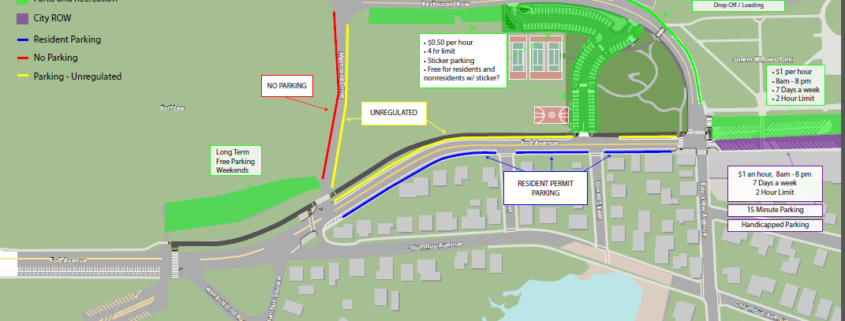
SALEM — Where many may say “mission accomplished,” Salem United says “time for the next mission.”
The 281st anniversary of Negro Election Day will run at Salem Willows this Saturday, July 16 — the third Saturday in July, as it has been scheduled for centuries.
But the nature of the event has transformed since Salem United organized to take it over in 2017, as has attention on civil rights issues and ongoing racial unrest in the U.S. the past few years, enflamed by the violent deaths of George Floyd, Breonna Taylor, Ahmaud Arbery and others. This has sparked a new generation of advocacy as well as nationwide recognition of Juneteenth.
This year, Negro Election Day will become a state holiday, and Salem United will be the subject of a documentary. and the organization is wasting no time building for the future.
“We’re working on getting a center and museum,” said Doreen Wade, founder of Salem United. “And in the center, we’re going to be working with some of the senators and state reps and organizations that cater to voting.”
Negro Election Day was started in 1741, during the era of colonial slavery, when the Black community came together to elect a leader — a “King” — and lobbyist to advocate for its needs and rights.
The event ultimately moved to the Willows in 1880 and began taking on more of a family festival atmosphere. By the early 2000s, with no real leader driving it, it was also known as the Salem Black Picnic. The phrase, Black picnic, has more recently been strongly discouraged, however, given its historical connection to lynching of Black Americans — a history that has also more recently entered the broader public consciousness alongside growing awareness of Juneteenth.
The effort to make Negro Election Day a state holiday was recently approved by the Senate and successfully cleared the House on Tuesday, ahead of an expected signing ceremony with Gov. Charlie Baker this weekend to make the date a permanent one across Massachusetts, according to state Rep. Paul Tucker.
In 2022, Negro Election Day is “going back to its origin, what it’s always been since 2017 and 1741,” Wade said.
“The Making of Negro Election Day and Black King Pompey,” an in-house documentary expected to hit the Salem Film Festival, will be shown Friday night at the Salem Visitor Center, 2 New Liberty St., beginning at 6 p.m.
The film ties in the origins of the event and the community’s first elected leader, Black King Pompey.
The main entertainment stage at the Willows on Saturday will open at 9 a.m. and close at 7 p.m. But there’s even more attention on the parade this year, which will begin at noon and wind through the area until about 1:30 p.m., ending with an awards and recognition ceremony, Wade explained.
The parade will be led by grand marshal Lucas Miller, Salem’s new police chief, along with the Massachusetts Association of Minority Law Enforcement Officers, the Boston Society of Vulcans (a firefighter association), and uniformed police from Beverly, Lynn, Peabody, Salem, Swampscott and the Essex County Sheriff. They will be followed by a contingent from the Salem Fire Department and Atlantic Ambulance.
All of this, Wade said, was very intentional.
“With the way things are going, trying to build unity between the Police Department and community is something big we’re doing,” Wade said. “This parade is going to be one of those factors in maintaining — not just building, but maintaining — through their presence.”
And that’s noteworthy in such a turbulent racial climate, according to Wade.
“The relationship itself is spectacular,” she said, referencing Salem police.
“The chief isn’t being honored because he’s some new guy in Salem and we wanted to impress him. He’s being honored because of his commitment to the history and Salem United. He’s even put a presence on our board.
“In a time when the Black community and the blue community just can’t get together… we’re showing up here on the North Shore that that’s not really a reality here (the tension),” Wade said. “We’re working to take this straight across the state of Massachusetts.”
Tucker, who’s worked to get the House version of the bill passed in recent weeks — Sen. Joan Lovely co-sponsored the Senate version — said the signing of the bill to make Negro Election Day official “is such a well-deserved recognition.”
“This whole system of governance in the Black community was almost lost to history,” Tucker said. “We think this is a part of our history, and people should know. The African American community particularly around here has a tremendously proud history, and that story has to be told.”
For more on Negro Election Day and this year’s events, visit salemunitedinc.org.
Contact Dustin Luca at 978-338-2523 or DLuca@salemnews.com. Follow him at facebook.com/dustinluca or on Twitter @DustinLucaSN.


